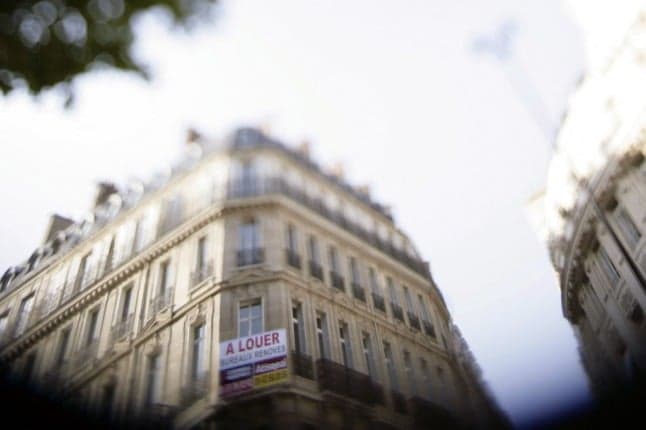France ends extended 'winter truce' on evictions

After an extension due to financial hardship caused by the pandemic and lockdowns, France's extended 'winter truce' on evictions has come to an end, allowing landlords to bring legal proceedings against tenants who are in arrears.
Under the rules of the trêve hivernale (winter truce) tenants in France who fall into rent arrears cannot be evicted in winter. Likewise, a tenant's electricity and gas cannot be cut off in the winter no matter how badly they are in arrears.
The trêve hivernale usually runs from October to April, but for the past two years it has been extended.
READ ALSO What changes in France in June 2021
The 2020/21 trêve comes to an end on June 1st, with the government extending it in recognition of the fact that the pandemic and repeated lockdowns have caused financial hardship for many.
As legal proceedings against defaulting tenants restart, homeless charity the Abbé Pierre Foundation estimates that 33,000 households - around 66,000 people - run the risk of being evicted this summer.
Housing charities have in the past been critical of the concept of the winter truce, saying that it acts as a 'sticking plaster' rather than addressing the real issues of why people get into arrears in the first place or putting in place better financial support for less well off people.
Meanwhile landlords don't like it for obvious reasons. And in France not all landlords are wealthy, many people inherit property and for some older people the rental income from a property they have inherited is a vital supplement to their pension.
But despite the criticism, the trêve hivernale is a crucial part of the legal landscape and one of many protections that tenants in France enjoy.
READ ALSO French property: Your rights as a tenant
Comments
See Also
Under the rules of the trêve hivernale (winter truce) tenants in France who fall into rent arrears cannot be evicted in winter. Likewise, a tenant's electricity and gas cannot be cut off in the winter no matter how badly they are in arrears.
The trêve hivernale usually runs from October to April, but for the past two years it has been extended.
READ ALSO What changes in France in June 2021
The 2020/21 trêve comes to an end on June 1st, with the government extending it in recognition of the fact that the pandemic and repeated lockdowns have caused financial hardship for many.
As legal proceedings against defaulting tenants restart, homeless charity the Abbé Pierre Foundation estimates that 33,000 households - around 66,000 people - run the risk of being evicted this summer.
Housing charities have in the past been critical of the concept of the winter truce, saying that it acts as a 'sticking plaster' rather than addressing the real issues of why people get into arrears in the first place or putting in place better financial support for less well off people.
Meanwhile landlords don't like it for obvious reasons. And in France not all landlords are wealthy, many people inherit property and for some older people the rental income from a property they have inherited is a vital supplement to their pension.
But despite the criticism, the trêve hivernale is a crucial part of the legal landscape and one of many protections that tenants in France enjoy.
READ ALSO French property: Your rights as a tenant
Join the conversation in our comments section below. Share your own views and experience and if you have a question or suggestion for our journalists then email us at [email protected].
Please keep comments civil, constructive and on topic – and make sure to read our terms of use before getting involved.
Please log in here to leave a comment.